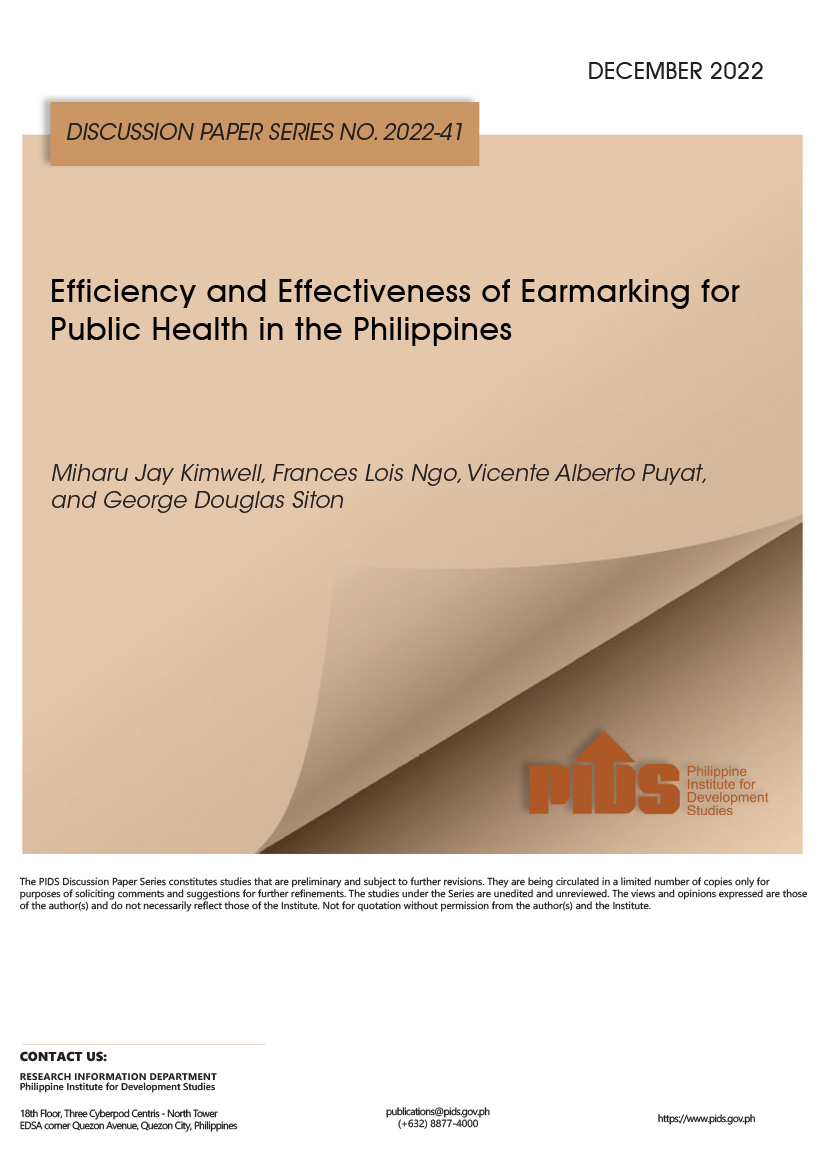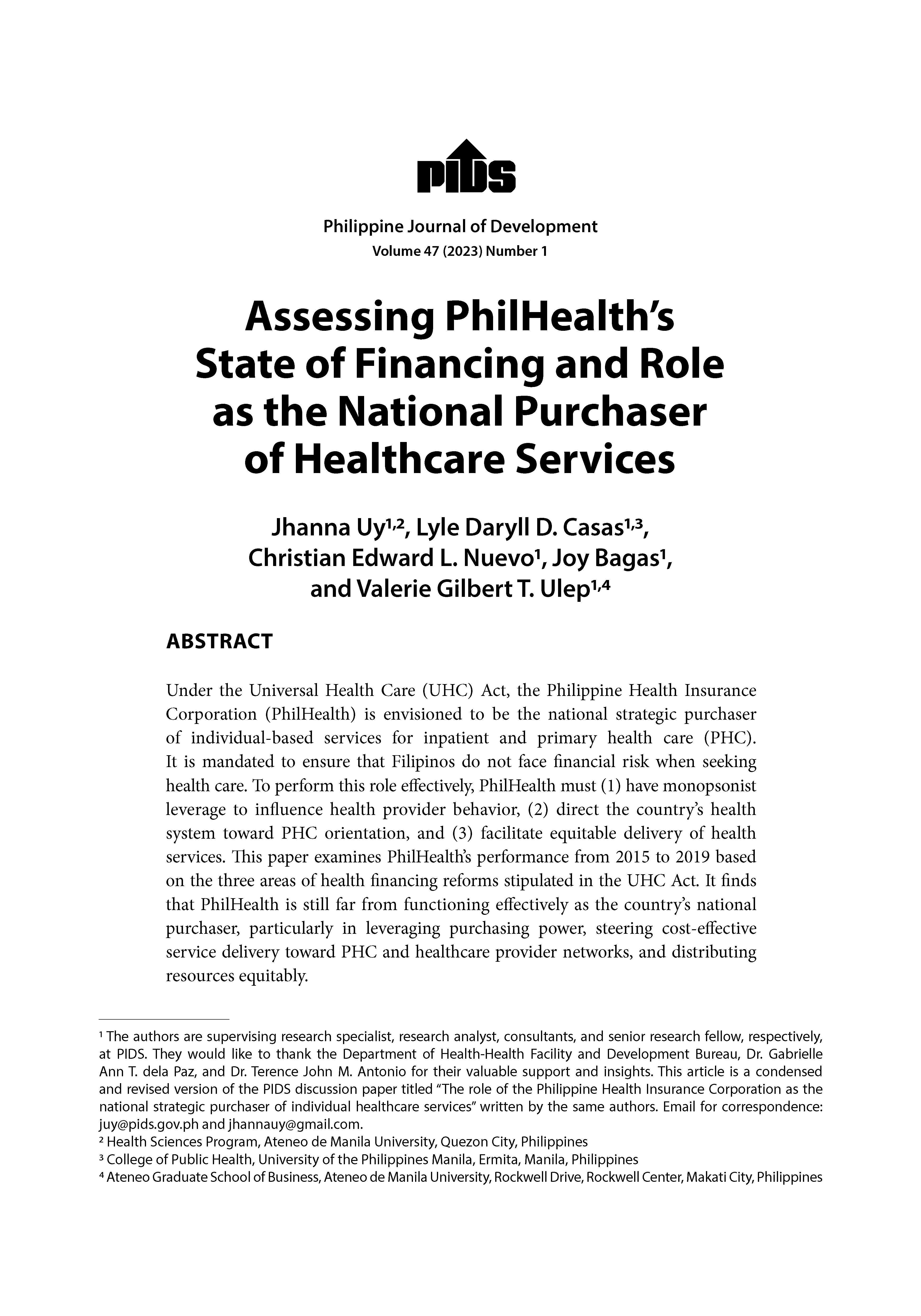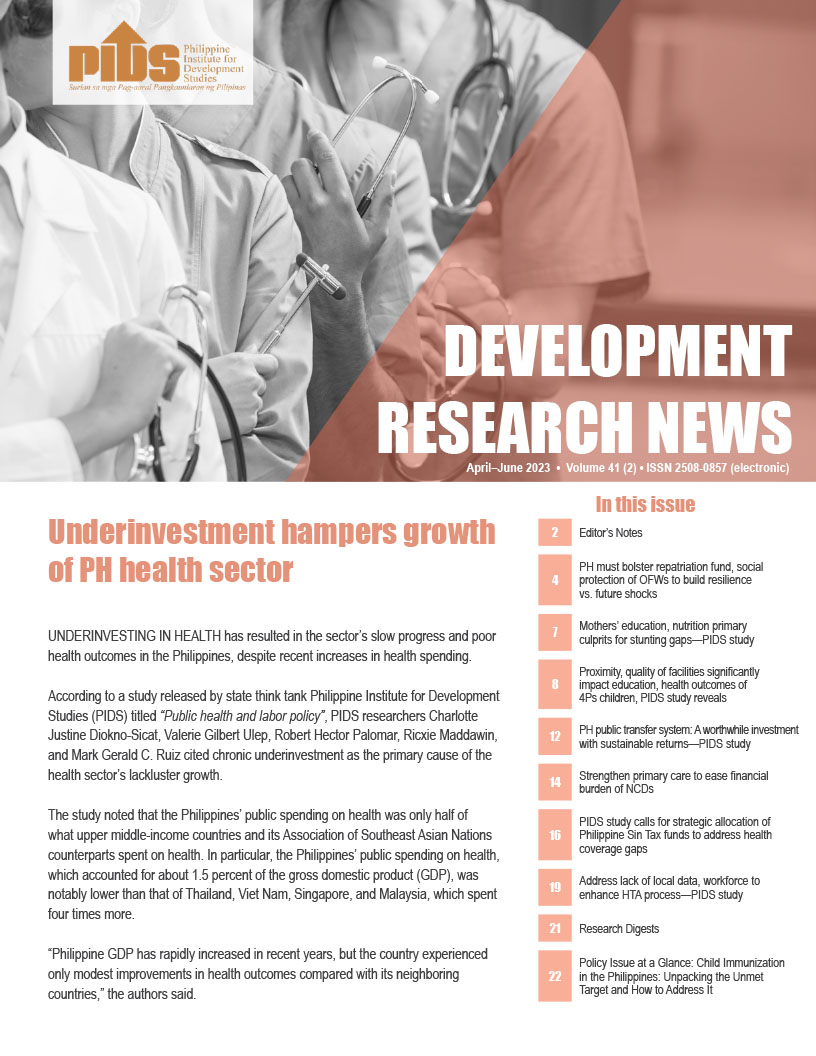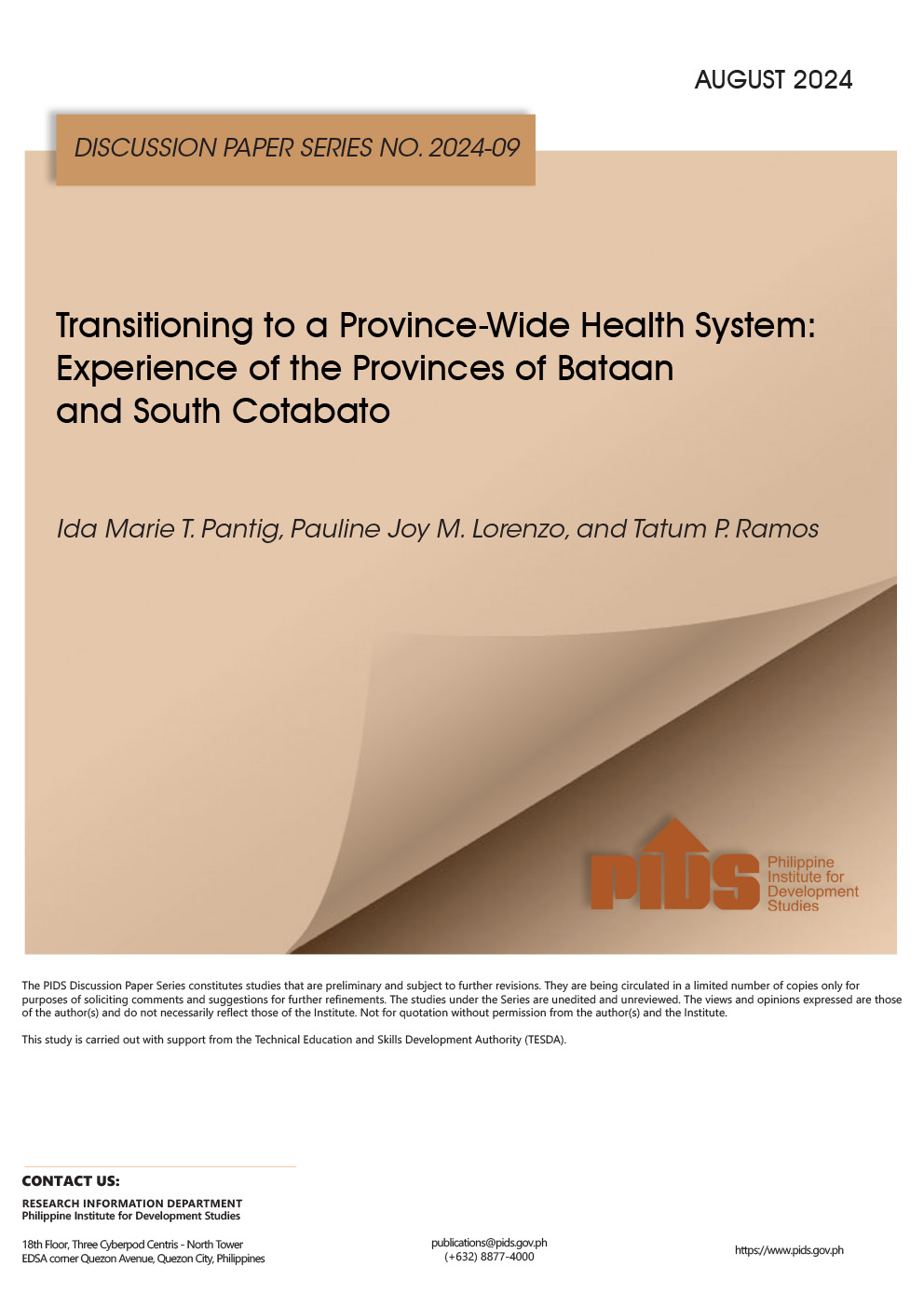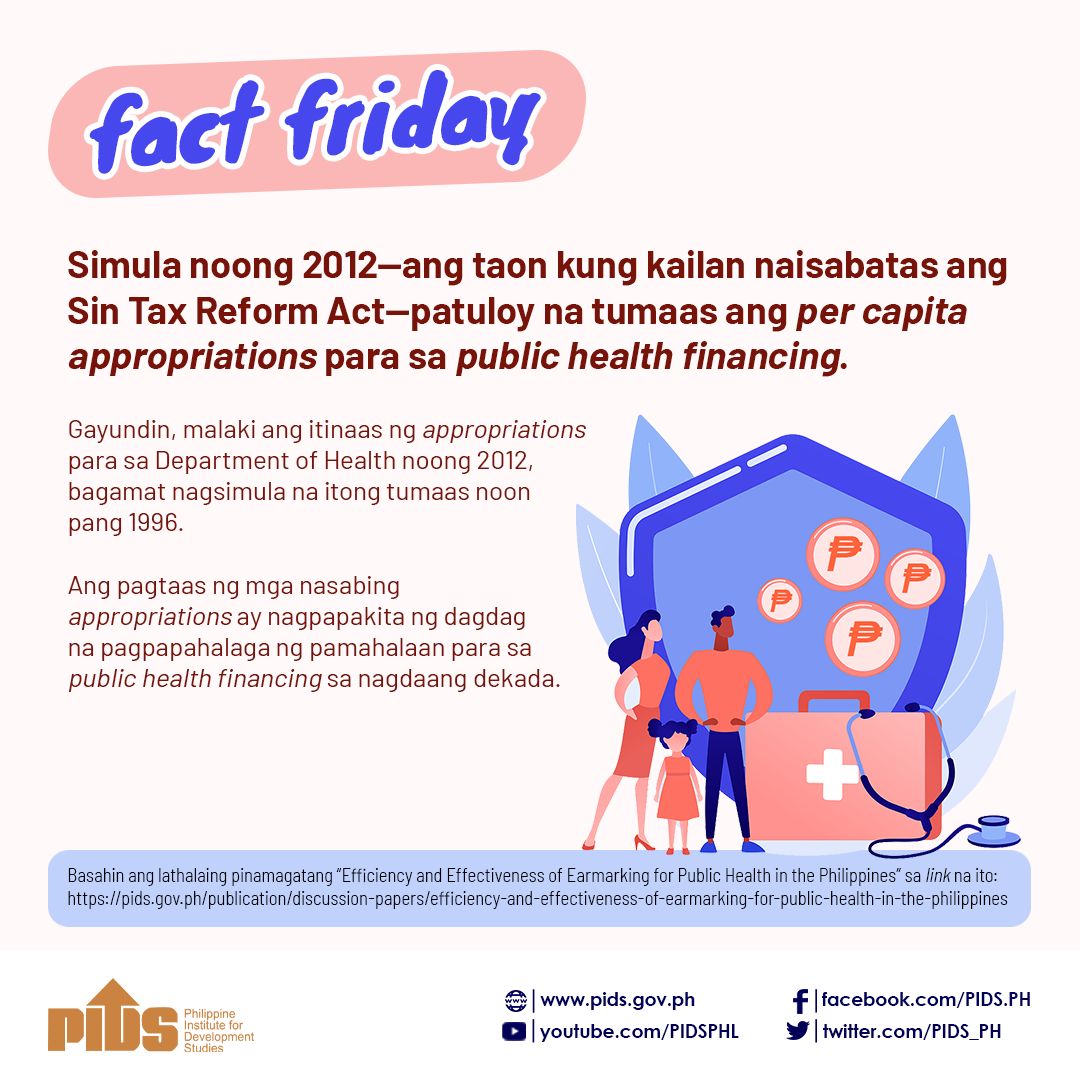The Sin Tax Reform Act (STRA) of 2012 (RA 10351) and its amendments paved the way to revisit excise taxation for sin products, such as tobacco, alcohol, heated tobacco products and vapor products, and sweetened beverages. The ad valorem tax system reform has a two-fold aim: (1) increase revenues for public spending on health and (2) reduce the burden of tobacco smoking and alcohol use. This study has attempted to examine the quality of spending of earmarked funds by the Philippine public health sector and, in doing so, to identify constraints to efficient and effective use. In particular, this study utilized a modified intersectoral framework focusing on four key criteria for evaluating the implementation of the earmarking policy: adequacy, efficacy, equity, and effectiveness. Although the STRA has brought about improvements in program and health outcomes, there is a need to revisit policies and processes to reap the benefits of earmarked funds adequately, efficiently, equitably, and effectively in the public health sector.
Comments to this paper are welcome within 60 days from the date of posting. Email publications@pids.gov.ph.
Citations
This publication has been cited 4 times
- Desiderio, Louella. 2023. Government needs to revisit sin tax law – PIDS. Philippine Star.
- Jocson, Luisa Maria Jacinta. 2023. Sin tax revenues not efficiently used for public health programs — PIDS. BusinessWorld.
- Panay News. 2023. Funding public health. Panay News.
- Panay News. 2023. The ‘sin’ that funds public health. Panay News.

